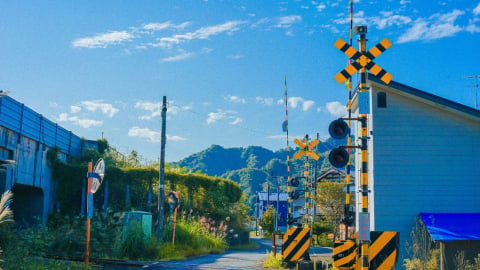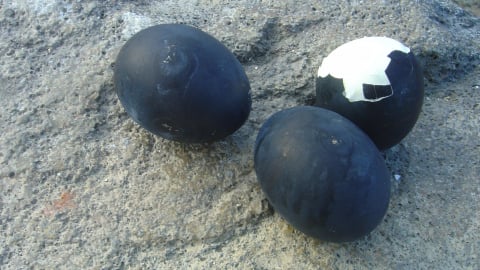Two Seasons - A Journey of Discovery
On the main island of Honshu, stretching along the length of Japan, the two regions of Hokuriku Shinetsu and Tokai are like two contrasting pieces of a winter puzzle. If Hokuriku Shinetsu—where the snow-capped Alps and winds from the Sea of Japan bring crisp air—is a pure winter landscape, then Tokai, facing the Pacific Ocean, offers a warm and pleasant atmosphere, where sunshine remains even on the coldest days.

The Hokuriku Shinetsu and Tokai region – a place where mountains, sea, and Japanese culture intersect.
This contrast creates a unique appeal: travelers can start their morning amidst falling snow in Shinetsu and end their afternoon with a warm sunset in Tokai, all in one trip. Beyond the scenery, this region is also a treasure trove of Japanese winter cuisine, from Hokuriku snow crab and Fukui's traditional soba noodles to fresh produce and Shizuoka eel. It's Japan in winter: cold on the outside, but warm in every detail.
Hida Furukawa - when snow covers the ancient tiled roofs
Nestled in the Gifu Mountains, Hida Furukawa is a small town beside the Seto River. From late December to February, snow blankets the white-walled barn roofs, cobblestone streets, and ancient wooden fences, transforming the town into a serene and tranquil winter scene.


Unlike the famous old town of Takayama, Furukawa retains the peaceful and authentic charm of a highland town. Visitors can leisurely stroll along the riverbank, visit small cafes, or sip warm sake under soft yellow lights – to fully experience the slow and warm pace of life here.
The town is also known as the inspiration for the hit movie "Your Name." Familiar scenes from the film, such as Furukawa Station and Keta Wakamiya Shrine, have been preserved intact. Fans come here not only to "touch" the world that moved them on screen, but also to feel the "soul" of Japan in every small detail - the sound of flowing water, the wooden bridge, or the thin layer of snow on the rooftops.


If you visit in mid-January, you'll be immersed in the Santera Mairi festival – a centuries-old matchmaking ritual. As night falls, thousands of white and red Senbon Rosoku candles are lit along the Seto River, symbolizing wishes and gratitude. In the flickering candlelight and the echoing temple bells, people quietly pass by three temples to pray for good fortune and a successful marriage. The entire town is enveloped in a sacred, warm atmosphere, an unforgettable experience for anyone who visits.
Don't leave Furukawa without trying Hida beef – the pride of the region. Grilled directly over charcoal, the meat is tender, melts in your mouth, and is rich and flavorful, served with gohei mochi – grilled rice topped with a signature miso paste, or a bowl of local ramen. A simple meal, yet enough to leave you with unforgettable memories of Japanese winter.

A steaming bowl of ramen chases away the chill of the Hida mountains.

Gohei mochi - the rustic flavor of toasted rice topped with fragrant miso sauce.

Tender, succulent Hida beef – the full flavor of the Gifu mountain region.
The Santera Mairi event takes place on January 15th every year. Time: 12:00 - 21:00.
There will be local food stalls where visitors can enjoy specialties from the Hida region. The candlelight vigil and lantern release will take place from 4:00 PM. Admission is free.
Fukui Dinosaur Museum - Step into the dinosaur kingdom amidst the snow.
In Katsuyama City, Fukui Prefecture, where heavy snowfall occurs throughout the winter, the Fukui Dinosaur Museum is a special destination for both adults and children. Nestled in a mountain valley, the massive silver-domed building—inspired by the shape of a dinosaur egg—stands out against the pristine white snow.




Inside, over 50 real dinosaur skeletons, diorama models, video presentations, and moving robotics create an astonishingly lifelike experience. This is also where the first Fukuisaurus and Fukuiraptor were discovered – two iconic paleontological species of Japan, making the museum a national pride in dinosaur research.
Beyond being just a museum, the outdoor grounds surrounding the building are also a favorite during the snowy season: visitors can go skiing, take photos with the giant ice-covered dinosaur statue, or simply enjoy the fresh air amidst the spectacular white landscape.
After sightseeing, local cuisine is the perfect reward. Fukui is famous for its Echizen crab – a specialty caught in the frigid waters of Japan – and its simple yet refined Echizen soba noodles. A bowl of hot noodles in sub-zero temperatures is enough to make the trip memorable.

A piece of Echizen crab, encapsulating the sweet taste of the Japanese sea.

A simple yet unforgettable bowl of Echizen soba
Located at 51-11 Terao, Muroko-cho, Katsuyama City, Fukui Prefecture, the museum is open from 9:00 to 17:00 daily, with the last visitor at 16:30, giving you ample time to explore the magnificent world of dinosaurs amidst the stunning winter scenery of Japan.
Opening hours: 9:00 AM ~ 5:00 PM (Last admission at 4:30 PM). Closed:
- The 2nd and 4th Wednesday of each month
- December 31st and January 1st every year
The museum may close temporarily for changes to the exhibition space or for facility maintenance. Visitors are advised to check the website for information before visiting.
Gotemba Kogen Tokinosumika - Forest of Lights at the Foot of Mount Fuji
About two hours by train from Tokyo, Gotemba Kogen Tokinosumika (Shizuoka Prefecture) is where winter transforms into a feast of light. The annual "HIKARINOSUMIKA" light festival returns in winter 2025-2026 with the theme "Magical Forest," featuring over 5.5 million LED lights illuminating a vast area overlooking Mount Fuji.
This year's highlight is a 300-meter-long light tunnel and a 20-meter-tall light tree inspired by a sacred mountain. The award-winning 150-meter-high laser water show, which won the International Illumination Award 2024, will return along with the "Night Baburium" soap bubble performance and choreography by leading choreographer Shojin.



Visitors can stroll along the illuminated walkways, watch light mapping projections depicting Japanese fairy tales, or soak in the outdoor onsen, where rising steam blends with the lights and cool air – a feeling that is both romantic and relaxing.
The 2025-2026 Super Light Festival “HIKARINOSUMIKA”. Location: 719 Kouyama, Gotemba City, Shizuoka Prefecture, Japan. Dates: October 11, 2025 to March 8, 2026.
Lighting schedule:
- From October 11, 2025 to October 31, 2025: 17:00 ~ 22:00
- From November 1st, 2025 to January 12th, 2026: 16:30 ~ 22:00
- From January 13, 2026 to March 8, 2026: 17:00 ~ 21:30
A different Japan in the middle of winter.
From the snow-covered ancient town of Hida to the magnificent dinosaur museum and the dazzling Tokinosumika Forest of Lights, the journey through Hokuriku Shinetsu and Tokai offers a new perspective on Japanese winter, not just the white snow, but also the harmonious blend of nature, culture, and people.

A peaceful moment amidst the white hues of winter.
At each destination, travelers discover a unique rhythm of life: a place where people slow down, appreciate the beauty of the moment, and find peace amidst the cold. For those who love unconventional journeys, this winter is perhaps the ideal time to "read" Japan through new eyes – from the snow-capped north to the bright sunshine of the south.

 VI
VI EN
EN


































